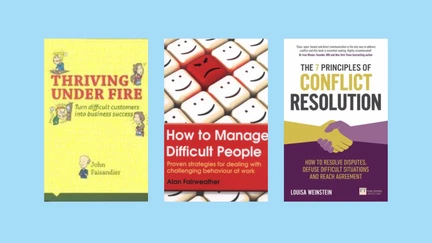Breaking up with a Client
Is a client causing your business grief? We've pulled together some resources to help business owners negotiate a successful breakup.

Joe* runs a small landscaping and garden maintenance business, employing three staff. At times what the company can do is strictly governed by weather. Recently Joe spent a bemused five minutes listening to a client berating him for not doing work to her satisfaction and schedule despite it having been impossible to achieve.
Zara* runs a home based massage therapy business in the Eastern suburbs. She is a qualified and experienced massage therapist with a website clearly detailing all aspects of her business and with a list of glowing customer feedback. Her target market is her local community - a mix of work from home types and mums wanting a wellbeing treatment. Unfortunately, Zara's business sometimes attracts a type of customer who thinks it is ok to make inappropriate requests. As a result Zara has been forced to terminate appointments and request the client leave.
What Joe and Zara have in common is clients who have unreasonable (and unacceptable) expectations of the service they expect these small businesses to provide.
Joe allowed the customer to vent her frustration then calmly addressed the issues raised by the client, including restating what work the contract with his company did and did not include and the schedule that had been agreed upon.
Zara, while displaying a code of conduct she worked to, has now introduced a code of conduct for clients for sign. It includes a clause stating that inappropriate language or behaviour will not be tolerated and should a client make her feel uncomfortable, they will be asked to leave.
Both Zara and Joe have addressed the immediate issues with respective clients. At the moment this works for them. But what if the unreasonable expectations continue? Is it ok to 'fire' a client? If so, how do you go about breaking up?

Small businesses, contractors or sole traders are often reluctant to let a client go but sometimes you need to consider if they are really worth it. Clients who are a drain financially or emotionally (slow payers or late to appointments or upset staff with rude, demanding behaviour) are disrespectful and shouldn't be tolerated.
Certainly the first step is to address the issues that are causing problems in the working relationship and try and find a working solution. If that doesn't work though, a decision needs to be made, in a professional manner, about the future of the working relationship.
In the article My customer is so annoying! How to rationally decide if the time has come to sack them Colin Shaw writes that " Customer relationships have to be win-win. If they aren’t, it’s time to end it. However, it shouldn’t be a quick decision, nor should it happen in an email or text. There is a process, and today we will look at when and how you should sack a customer".
Forbes.com offers 10 ways to respectfully 'break up' with a client while Entrepreneur.com offers up this piece of advice : "As an entrepreneur, it can be hard to cut a client loose. But, remember the saying, "You can't pour from an empty cup." If one client is taking the majority of your energy, you have less available for other clients, for attracting new clients and for taking care of yourself".
Ellen Brezniak's article The art of breaking up with bad customers also emphasises that point :
Every business needs customers, and it can be a real challenge to lose any of them. But the time and energy your team will gain – once the breakup with obnoxious customers is complete – makes the near term pain worth it.
One of the upsides as also noted in Why you sometimes need to 'break up' with a client is having the time and energy to put into recruiting and developing new clients who will quickly offset any initial loss of income.
Further reading:
- Thriving under fire : turn difficult customers into business success (2009) by John Faisandier
- How to manage difficult people (2014) by Alan Fairweather
- The 7 principles of conflict resolution : how to resolve disputes, defuse difficult situations and reach agreement (2018) by Louisa Weinstein
If you need more information, please contact the Prosearch team. We can help you find information across a range of perspectives and resources. All enquiries are treated in confidence.
*names and identifying details have been changed.